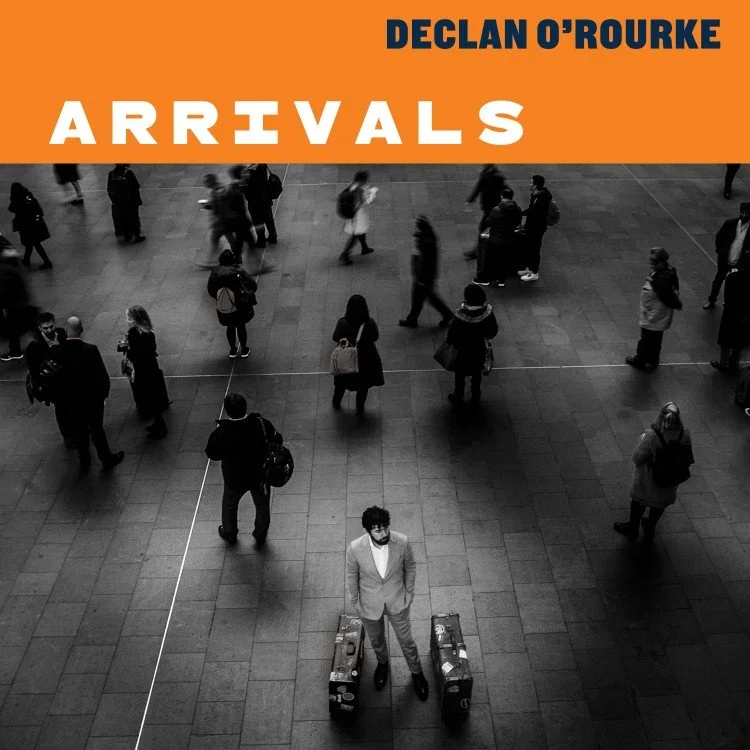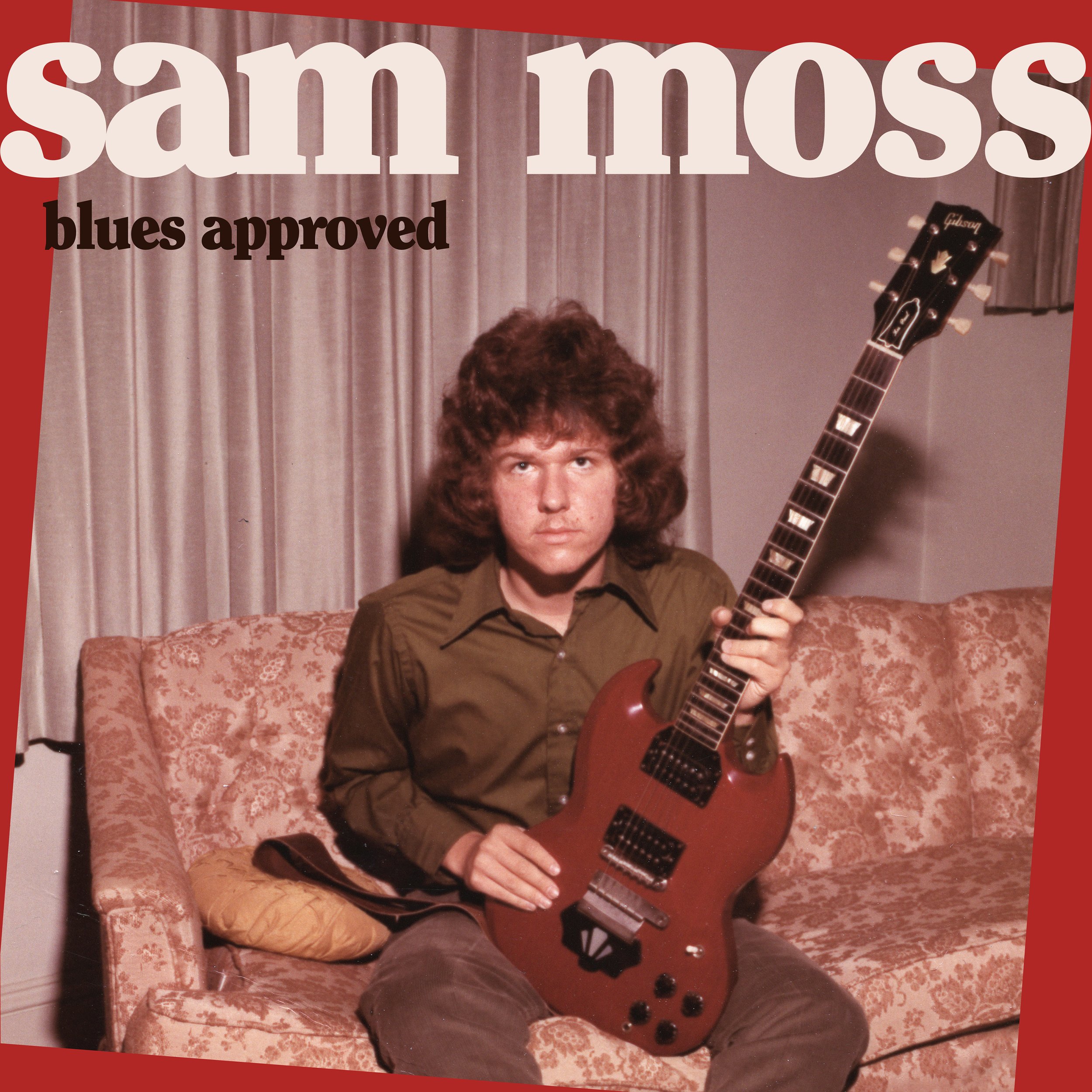Chapel Hill-based producer and musician Chris Stamey discovered the soulful, Stax- and Muscle Shoals–influenced recordings in 2020 at the end of an old four-track reel.
In Winston-Salem, Sam Moss is a local legend—“the guitar god no one’s heard of,” according to his heartfelt 2007 obituary. An axe slinger in both technical and economic terms, a teenaged Moss swept into town in 1967 fully formed, dazzling countless Triad contemporaries with his mastery of the electric blues. In 1982, he opened a vintage guitar store on Winston’s West End, building up a robust international business fueled by his sale of the “Mossburst”—what many aficionados consider the most beautiful 1959 Gibson Les Paul in existence.
By all accounts, everyone who encountered Sam Moss came away with meaningful memories, cosmic connections, and creative inspiration. What no one was able to take home with them, though, was an actual audio document of his musical mastery: Moss never released a single record, tape, or CD in his lifetime.
That has changed with Blues Approved, a fabled “lost tape”—featuring Moss and Mitch Easter blowing the roof off Easter’s Chapel Hill home studio in 1977—that was released last month on Raleigh’s Schoolkids Records. With the artifact out in the world, Moss’s rock ‘n’ roll star power has rolled from the Triad to the Triangle and beyond, making him a bona fide North Carolina treasure.
Chapel Hill-based producer and musician Chris Stamey discovered the soulful, Stax- and Muscle Shoals–influenced recordings in 2020 at the end of an old four-track reel.
“It wasn’t so much discovering something that was lost as discovering something I didn’t realize existed,” Stamey says over Zoom on a recent Tuesday afternoon. “I’d heard about the sessions from Mitch, but I had not realized the material was so good. I felt like I was opening King Tut’s tomb—all of a sudden the light goes on and there’s a lot of gilded stuff laying around.”
Stamey, who played with power-pop icon Alex Chilton of Big Star in the 1970s and indie rock pioneers The dB’s in the eighties, consulted with Easter on the remastering of the tracks, separating the original layers to remove generations of tape hiss before resculpting them with sharp, modern sizzle. A few tracks (“Rooster Blood,” “King of My Hill,” and “Vida Blanche”) feature tasteful brass from saxophonist Crispin Cioe (who played with The Rolling Stones, James Brown, and Ray Charles), backing trademark Moss lyrics like “Ain’t nobody gonna stop me, baby / Gonna move when I want to, baby.”
“There was one particular lineup Sam led in the seventies called Rhythm Method,” Stamey remembers. “They had a horn section and played material influenced by [Mike Bloomfield’s band] The Electric Flag, Stax, and Motown. Mitch, Gene Holder, and I debated whether we should add anything to the guitar, bass, and drums, but we decided Sam would love it.” That Southern swagger carries over on “Ain’t That Peculiar,” one of five songs pulled from early 1990s sessions recorded at Creative Audio and Turtle Tapes in Winston-Salem that supplement Blues Approved.
The rest of the album oozes excellence, from Sam’s sexy strut on “If You See My Baby” and the Steely Dan swing of “Trying to Do Better” to prog rock, psychedelia, and Texas blues on “PJ,” “Nightflight over Berlin,” and “My Man Mike.” A country-fried cover of Buck Owens’s “Act Naturally” pulled from a church basement demo recorded in 1967 by Moss’s first band, Clique, rounds out the historical document.
“Sam was really known as a guitar slinger,” Stamey says, “but this is not a guitar slinger’s record. He was the best player in any room but also a beloved figure. I mean, he literally showed me how to play—where to put my fingers. Only a few people had cracked the code of electric rock guitar in 1967, and this preacher’s kid from Taylorsville was one of them.”
On today’s terms, Blues Approved tracks as more effortless than ambitious—the comfortable, cohesive statement of a confident artist so fully aware of his charisma he doesn’t care enough to leverage it beyond his small circle of friends. Stamey credits that spirit—and the inside joke of the title Blues Approved, which plays off Moss’s trademark turn of enthusiastic phrase (“Sam approved!”)—with the success of the project. After remixing the found recordings in 2020, he set up a Kickstarter to pay for professional mastering, which blew past its $8,000 goal. That enabled the production of a beautiful CD set (available now) that includes a deluxe booklet designed by Laura Williams and liner notes written by Ed Bumgardner, along with a corresponding vinyl version that’s out later this summer.
A show planned for August at the Ramkat in Winston-Salem is sure to be a sellout celebration. Fourteen years after his death, Moss even earned a star on the city’s downtown Walk of Fame alongside Maya Angelou and Stuart Scott, cementing his status as a true Tar Heel legend.
“Blues Approved has found a lot of love, but I’m not the only one pushing this,” Stamey says. He cites the invaluable contributions of Easter, Gene Holder, Henry Heidtmann, Doug Williams, and other heavy hitters in the Triad, the Triangle, and beyond (even the Netherlands, where the album has garnered positive reviews from blues-loving press). “I think it connects because Sam is singing from the heart on this record. There’s something immediate and honest—and, like Sam, a little unpredictable—that makes him come alive for all of us.”
Correction: The print edition of this piece incorrectly stated, via an interview subject, that the "Mossburst” sold for a quarter of a million; the sales number was likely lower.



